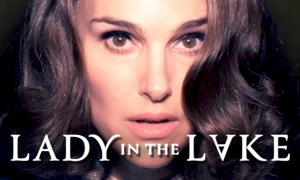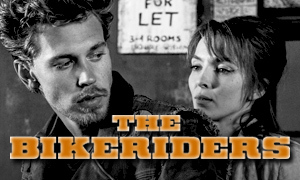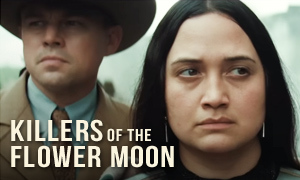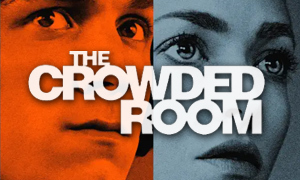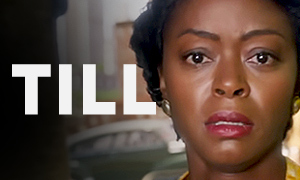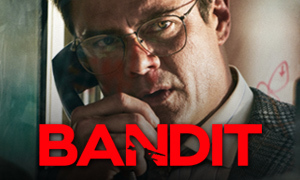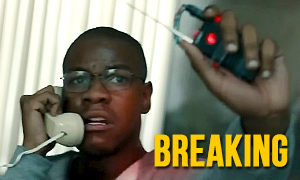White Boy Rick: History vs. Hollywood
| REEL FACE: | REAL FACE: |
Richie Merritt
Born: abt 2001 Birthplace: Baltimore, Maryland, USA | Richard Wershe Jr.
Born: July 18, 1969 Birthplace: Michigan, USA |
Matthew McConaughey
Born: November 4, 1969 Birthplace: Uvalde, Texas, USA | Richard Wershe Sr.
Death: October 2, 2014, Macomb, Michigan, USA (cancer) |
Bel Powley
Born: March 7, 1992 Birthplace: London, England, UK | Dawn Wershe
Born: August 10, 1966 Birthplace: Michigan, USA |
Bruce Dern
Born: June 4, 1936 Birthplace: Chicago, Illinois, USA | Roman Wershe
Born: August 4, 1904 Death: February 19, 1985, Detroit, Michigan, USA |
Piper Laurie
Born: January 22, 1932 Birthplace: Detroit, Michigan, USA | Verna Wershe
|
Jonathan Majors
Born: September 7, 1989 | Johnny 'Lil Man' Curry
|
Taylour Paige
Born: October 5, 1990 Birthplace: Santa Monica, California, USA | Cathy Volsan
Born: March 24, 1963 |
Eddie Marsan
Born: June 9, 1968 Birthplace: Stepney, London, England, UK | Art Derrick
Born: April 20, 1953 Death: August 1, 2005 |
Were White Boy Rick's parents divorced?
Yes, the true story confirms that they separated when Wershe was around six. His mom, Darlene, left Detroit's East Side and moved to the suburbs. She eventually remarried. Wershe and his sister Dawn remained with their father, Richard Wershe Sr. (Matthew McConaughey in the movie) in the small brick house on Hampshire Street at Dickerson Avenue, seven miles from downtown. According to the White Boy documentary, he did go to stay with his mother for the eighth grade when he was 13, but he didn't get along with her new husband and he was still in contact with his dad. After less than a year, his father convinced him to come back to the East Side.
Did White Boy Rick's grandparents really live across the street?
Yes. Portrayed by Bruce Dern and Piper Laurie in the White Boy Rick movie, Roman and Verna Wershe did live across the street. They were relics of a time when Detroit was booming. Both had worked for Chrysler for four decades. It was one reason why Wershe Sr. didn't want to leave the crack-ridden neighborhood. -The Atavist Magazine
Was Rick's father, Richard Wershe Sr., really a hustler who sold guns illegally?
Yes. Like Matthew McConaughey's character in the movie, Richard Wershe Sr. was a tall, wiry man who came up with different ways to make money, including selling surplus electronics, sporting goods, satellite-TV equipment, and devices to pirate cable TV. This is in addition to trying to get his numerous inventions off the ground. He also bought and sold firearms, selling guns illegally on the black market, often out of his house. "I was, I would say, a hustler," Wershe Sr. admitted. A close childhood friend of Rick's said that in the case of Rick's father, the almighty buck ranked above morals. -The Atavist Magazine
How did the real White Boy Rick become involved with crime and dealing drugs at such a young age?
Rick's sister Dawn was dating a small-time criminal named Terrence Bell and she had become involved with crack cocaine. Rick befriended Bell, who lured him into the world of petty crime. Rick says they robbed somewhere around 20 homes together (not shown in the movie). It didn't help that Rick's father would leave the kids alone to go out of town to do business.
The reigning drug operation in Rick's East Side neighborhood was run by twin brothers Leo 'Big Man' Curry and Johnny 'Lil Man' Curry, who lived just across the I-94 from the Wershes. Leo was loud and flashy, while Johnny was the clear-headed businessman who didn't use drugs and even avoided being in the same room as the ones he supplied. Rick started hanging out with their younger brother, Rudell "Boo" Curry, who shared Rick's interest in cars, motorcycles and girls. The more time he spent with Boo, the more encounters he had with Boo's older brothers, including Johnny Curry. The White Boy Rick true story confirms that some of these encounters did occur at the roller skating rink like in the movie. Lured by their wealth and expensive things he had only seen in magazines, Rick started spending time with Johnny. Rick dressed in tracksuits and wore pricey Fila sneakers. Eventually, he began dealing, not under Johnny's watch, but on his own, and his trajectory was set.
He started bringing in more and more money from selling drugs, eventually cutting out the middle men and having cocaine delivered directly from suppliers in Miami. He also sold illegal guns. "My daughter became sick on doing drugs," Richard Wershe Sr. says. "My son became sick on power, the excitement, the prestige, the money, and the glamour of selling. OK? He became sick." -The Atavist Magazine
Did White Boy Rick chase after a carjacker and shoot at him?
This happened when Wershe was 14, well before he could drive legally. Wershe had driven his grandmother's car to a gas station, and his sister Dawn drove another car. He left his keys in the ignition and went in to buy a soda. A carjacker with a gun in his hand jumped into Wershe's car. Dawn blared her horn to alert Wershe, who came out of the store and got into the passenger seat of the car Dawn was driving. They gave chase and Wershe got off two shots using the cheap .22 revolver that Dawn had in her purse. The gun jammed. An off-duty cop was in traffic nearby and pulled them over. Wershe was arrested but the cop never showed up for the trial. This plays out a little differently in the movie, with them running out of a restaurant and shooting at the carjacker while standing the parking lot. A nearby policeman then appears to arrest them. -The Atavist Magazine
Did White Boy Rick drop out of high school?
Yes. Fact-checking the White Boy Rick movie confirmed that he had dropped out of high school by the spring of 1985, prior to his sixteenth birthday. -The Atavist Magazine
How exactly did Richard Wershe Jr. become an FBI informant at age 14?
When he was no more than 14, Richard Wershe Jr. was becoming familiar with the major players in the Detroit drug world, especially in his neighborhood. As described above, this included "the cocaine king" Johnny 'Lil Man' Curry (portrayed by Jonathan Majors in the movie). In the spring of 1984, FBI agents knocked on the Wershes' door, intending to gather information from Rick's dad. Rick hadn't been spending time with Curry yet, but he knew who the operators were in the neighborhood. And his father had sold some of them guns. This part of the movie unfolds in almost exactly the same way.
Richard Wershe Sr. was registered as the official FBI informant, but most of the intelligence was coming from his son. Eventually, this was mostly information about the Curry Brothers, including their role in the accidental April 1985 death of a 13-year-old boy in a drive-by shooting and intel on their organization's drug houses. The Wershes were paid roughly $35,000 in informant fees, despite it being technically illegal to use a child as an informant. The FBI even gave Rick Jr. a fake ID and paid for an April 1985 trip to Las Vegas so that he could gather more intelligence on Curry. He went as part of Curry's entourage, there to attend the Hearns vs. Hagler boxing match at Caesar's Palace (like in the film, they never got into the match). -White Boy Documentary
Did Richard Wershe Jr. really get shot?
Yes. A member of Johnny Curry's crew shot Wershe in the stomach with a .357 when Wershe was 15. The guy who pulled the trigger was an acquaintance and swore that it was an accident, but Wershe wasn't completely convinced, especially since Curry had likely caught wind that he was an informant. The bullet tore through his large intestine. The guy's girlfriend came home and called 911 when she saw Wershe writhing on the floor. Other Curry gang members arrived to the home before the ambulance and attempted to load Curry into the backseat of a car, possibly to dump him somewhere. An ambulance arrived and blocked them from leaving. Wershe barely survived and left the hospital with a colostomy bag. It was embarrassing but getting shot gave Wershe street cred. Instead of pulling him out, the FBI used his newfound cred to push him in deeper with the Curry gang.
In the movie, the acquaintance who shot Wershe makes his intentions clear before pulling the trigger, and unlike real life, the shooting takes place at Wershe's house in the film. Wershe passes out on the floor and it's unclear how he gets to the hospital, but we can assume his dad discovered him.
A few years later in 1987, hitman Nathaniel Craft tried to murder Wershe at an intersection to stop him from talking to the FBI about the murder of 13-year-old Damion Lucas and its cover up. Wershe, who was riding in the passenger seat of a convertible, told his friend to hit the gas and run the light after the sliding door of the van next to them started to open. Wershe stuck his foot over and pressed the gas pedal himself. The convertible laid tire across the intersection as Wershe ducked the hail of bullets coming from the van. Wershe and his friend escaped uninjured. -White Boy Documentary
Did Rick's dad agree to him selling drugs to help pay the family's bills?
No, at least not according to Rick's real-life sister, Dawn. "[The film] said that my dad couldn't handle us kids and that he had Rick sell drugs because he couldn't cut the mustard to pay the bills, and that's the farthest thing, farthest thing from the truth." Dawn says that when her dad discovered Rick had $50,000 in drug money, he wanted Rick out of the drug business. "Rick refused, so my dad took the money and threw my ex-husband and Rick out." Rick bought a house down the street and kept selling drugs, mainly crack cocaine. -WXYZ-TV Detroit
Did the real White Boy Rick drive a white Jeep with the words "THE SNOWMAN" on the back?
Yes. In addition to driving a Jeep that blatantly referenced his life as an up-and-coming cocaine dealer, Richard Wershe Jr. wore chains and tracksuits, a belt made of gold, a mink coat (given to him by Johnny Curry), and a Rolex with diamonds encircling it. -The Atavist Magazine
Did Richard Wershe Jr. have an affair with the wife of local cocaine kingpin Johnny Curry?
Yes. The White Boy Rick true story reveals that, like in the movie, it happened when Johnny Curry was in jail awaiting trial. His wife, Cathy Volsan (Mayor Coleman Young's niece), 24, began having an affair with Wershe, then 17. They were seen stepping out together but Wershe says that the relationship was tumultuous. When federal agents raided Cathy's townhouse on a Friday afternoon in June 1987, they found Wershe there in bed with her. -White Boy Documentary
How much money did White Boy Rick make trafficking drugs?
With local drug lord Johnny Curry behind bars, it is believed that Wershe, then 17, was bringing in about $30,000 a month. He moved tens of kilos. It was a significant amount, but it wasn't the hundreds of kilos that Detroit's drug kingpins were moving at the time. Wershe's days as a major drug dealer lasted only about a year before he was arrested. -Crime Watch Daily
How much cocaine did Richard Wershe Jr. have in his possession when he got busted?
Wershe, who was 17 at the time, was arrested for possession with intent to deliver more than eight kilograms of cocaine. Police had found the drugs stashed near Wershe's house after a traffic stop. He had allegedly hid them in a box under a nearby porch. -The New Yorker
However, Wershe maintains that they weren't his drugs and that the corrupt cops planted them there. "Where did the drugs come from? No one knows," says Wershe. "My fingerprints weren't on the drugs. My palm prints weren't on it." -Crime Watch Daily
Was Richard Wershe Jr. a teenage drug kingpin?
No. The real White Boy Rick did conspire with major players in the local Detroit drug trade. Most were black and at least a decade older than him. "I became addicted to the lifestyle," says the real Richard Wershe Jr. "I became addicted to the money. I became addicted to the women. I became addicted to that life." However, he wasn't a drug kingpin by any stretch, as trailers for the movie label him. -Crime Watch Daily
The press had played up Wershe's nickname and labeled him a "teenage drug kingpin." "I never set out to make Rick look like a bigger drug dealer than he was," says investigative journalist Chris Hansen, who helped popularize the White Boy Rick persona. "Were there some exaggerations? Perhaps."
FBI Special Agent Gregg Schwarz, who was stationed in Detroit at the time, asks, "Kingpin of what? Who?" Wershe didn't have a drug gang, he didn't have crack houses, he didn't control any parts of the city, and there's no evidence that he ever killed anyone or ordered anyone to be killed. "I'm sorry to tell ya that the legend of White Boy Rick is just not true." -White Boy Documentary
Did a judge say that Richard Wershe Jr. was "worse than a mass murderer"?
Yes. The remark was made when White Boy Rick appeared in court for possessing multiple kilos of cocaine. The judge, who commented that Wershe looked like the bank robber Baby Face Nelson, went on to say that "as far as the court is concerned, he's worse than a mass murderer." This was near the peak of the War on Drugs. The judge's implication is that the drugs Wershe supplied destroyed lives and likely resulted in deaths.
Wershe has claimed that his FBI handlers pushed him into the drug trade to serve their own ends. This is certainly a valid argument, especially since they didn't stop using him as an informant or offer to put him into witness protection after he had been shot and nearly died. -The Atavist
Did corrupt police put out a hit on White Boy Rick?
According to former hitman Nathaniel Craft, he says that he was hired by homicide detective Gil Hill to take out Richard Wershe Jr. so that Wershe couldn't confess to what he knew about corruption in the police department, including the cover up of Damion Lucas' murder. "I was told to kill White Boy Rick," says Craft. "We heard that he was tellin', so they said, 'We got to kill that white boy.'" -Documentary
Was Richard Wershe Jr. really sentenced to life in prison for dealing cocaine?
Yes. After he was done working as an informant for the FBI, Richard Wershe started selling cocaine himself. He was arrested in 1987 at age 17 and sentenced to life in prison. It was at a time when the hysteria surrounding the War on Drugs in the U.S. was nearing its peak. A merciless 1978 law in Michigan known as the 650-Lifer Law mandated life in prison without parole for being caught with more than six hundred and fifty grams of cocaine or heroin. Wershe, who was caught with more than eight kilograms in his possession, was way past that mark.
In 1998, the law was amended to retroactively allow for the chance of parole. Almost all of those who were convicted under the original law have been released. Johnny Curry, the so-called "cocaine king of the East Side," was freed 18 years before Wershe (Curry had been sentenced in Federal Court and wasn't subjected to Michigan's harsh laws that were in place at the time). Other violent kingpins and enforcers who were convicted under Michigan law were freed years ago. -The Atavist Magazine
Were Richard Wershe Jr.'s activities as an FBI informant disclosed at his trial?
No. In researching the White Boy Rick true story, we learned that Wershe's activities as an off-the-books confidential FBI informant were kept under wraps at the trial, which ended with him being given a life sentence. Many feel that it would have helped him avoid such harsh prison time. Wershe says that he was given new lawyers who had worked for Mayor Coleman Young. Instead of helping him, they made sure he was sent away for life. As stated in the White Boy documentary, one of those lawyers went on to become one of the officials who petitioned to deny Wershe's chance at parole in 2003, his one and only hearing until 2017.
Did Richard Wershe Jr. cooperate with the FBI after he was imprisoned?
Yes. When the FBI carried out Operation Backbone, an elaborate sting operation targeting public corruption in Detroit, Richard Wershe Jr. assisted them. He vouched for an undercover FBI agent who posed as his supplier from Miami. Cathy Volsan (Johnny Curry's wife who was also the mayor's niece) was eager to get back into the cocaine business and offered the police assistance. As a result of the FBI sting operation and Wershe's involvement, 18 corrupt police officers and politicians went to prison. -Documentary
Are the two FBI agents in the movie based on real people?
No. Fact-checking the White Boy Rick movie reveals that the FBI agents portrayed by Jennifer Jason Leigh and Rory Cochrane are not directly based on real people, though they were inspired by the agents who handled Wershe as an informant.
Did police officers steal some of White Boy Rick's cash when he was arrested?
This came up at Richard Wershe Jr.'s 2017 hearing. He commented that on the night of his 1987 arrest, police officers seized thirty-four thousand dollars of his cash. Assistant State Attorney General Scott Rothermel asked him why the police report indicates that less than thirty thousand dollars was confiscated. "You'd have to ask [the Detroit Police Department] that," Wershe Jr. replied. -The New Yorker
Did a prominent detective help cover up the Curry gang's murder of a 13-year-old boy?
According to both the real White Boy Rick and local drug czar Johnny Curry, homicide detective Gil Hill helped to cover up the murder of a 13-year-old boy named Damion Lucas, who was shot accidentally during a drive-by shooting that targeted the house of the boy's uncle, Leon Lucas. The Curry gang was upset that Leon, who had promised the Curry crew tickets to the Hearns vs. Hagler fight in Las Vegas, didn't follow through (White Boy Rick was in Vegas with the Curry crew). However, Leon was not home but the boy and his mom were. This all happens almost exactly the same in the movie.
"Johnny [Curry] placed a call to Gil, put it on speaker. We were ridin' around in Johnny's BMW. Basically, Gil told him not to worry about anything. They went down and met, and he said he gave Gil ten grand to cover up the kid's murder." The FBI investigated Gil Hill's possible role in the cover up, but no charges were ever brought against Hill. However, the allegations did come back to haunt him when he ran for mayor.
Gil Hill, who died in 2016 at age 84, had been famous for portraying Eddie Murphy's boss, Inspector Douglas Todd, in three Beverly Hills Cop films. At the time he landed the role, he was also the head of the Detroit Police Department's homicide division. He had been assigned to show the movie's director, Martin Brest, around Detroit. In doing so, the director saw potential in Gill and cast him as the tough-as-nails character.
Why was White Boy Rick kept in prison for so long?
While Michigan repealed the 650-Lifer Law that handed Richard Wershe Jr. a life sentence, he was still in prison long after other offenders were released. Wershe claims that it was because he had helped the FBI with Operation Backbone, which targeted corrupt police and public officials. "I think helping the FBI with Operation Backbone was the biggest mistake of my life," says Wershe, "because it created enemies I couldn't even imagine." He believes that the Detroit Police Department and city officials were against his release because he had helped the FBI expose dirty cops. Wershe says that the FBI barely scratched the surface of how deep the corruption ran, and releasing him meant that the truth might come out. Instead, he remained incarcerated in Michigan for 29 years. -Crime Watch Daily
Did the making of the movie help influence Richard Wershe Jr. being granted parole in 2017?
On June 8, 2017, Richard Wershe Jr., 47, was granted his first parole hearing in more than 14 years. The parole board was well-aware of the Matthew McConaughey movie, which had been filming in Las Vegas the night before the hearing. As a result of both the impending film and the White Boy documentary that had just been released, interest in Wershe Jr. had been on the rise, so much so that a spokesman for the Michigan Department of Corrections was on hand doing live TV interviews before 7 a.m. on the morning of the 9 a.m. hearing. The audience for the hearing packed the biggest room available in the state system. The end result of three hours of questioning was a ruling in Wershe Jr.'s favor.
"He's very frank about who he is and what he did," actor Matthew McConaughey said during a CinemaCon interview. "He's no saint. He's not proposing to be a saint. He's one of the few people I've met in jail that doesn't say, 'I'm innocent.' He's very frank about it. Should he be there for [29] years for the crime he committed? I don't think so. Is it peculiar that he gets released same year that we're makin' a movie that shines a little spotlight on him? That's a longer discussion. It makes you wonder how many other people might be incarcerated wrongly or unfairly, but because they don't have a light shone on them, they're [not] readdressing their incarceration. I'm not going to say I helped. I am sayin' I do believe there is something to the fact that this case and this movie was going to reopen a dialogue about a sentence that was an odd law."
Is White Boy Rick currently a free man?
No. Despite the Michigan Parole Board voting unanimously to grant Richard Wershe Jr. his freedom in 2017 after spending 29 years in prison, the then 47-year-old still had time to serve in Florida for a separate offense. He had previously plead guilty to two felonies related to a Florida stolen car scheme and was sentenced to five years in prison in 2006 on charges of racketeering and conspiracy to commit racketeering. He says that he was working with his sister from prison to secure a car for his mom. Other than that offense, he has been described as a model prisoner.
"I know that the drugs I sold destroyed people’s lives," Wershe said in 2017. "I can’t take it back." However, Wershe feels that his punishment grossly exceeded his crime, as do many others. Did his involvement in helping the FBI expose corrupt cops and city officials lead to him being denied parole for 29 years? The answer could be one that the city still isn't willing to face. -Detroit Free Press
White Boy Rick Documentary & Related Videos
Further investigate the White Boy Rick true story by watching the Richard Wershe Jr. documentary below. It contains clips from Richard Wershe Jr. interviews and photos from his time as an FBI informant and drug dealer.
